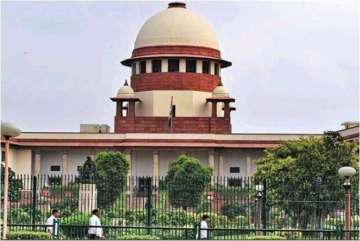The Supreme Court registry has issued summons to the Centre on an original suit filed by the Congress-led Chhattisgarh government seeking the apex court declare the UPA era National Investigation Agency (NIA) Act unconstitutional and arbitrary. The original suit has been filed under the Constitution's Article 131, which allows the state to move directly to the Supreme Court where a dispute arises between the state government and the Centre. Chhattisgarh is the first state to challenge the Act.
The registry issued summons to the Centre through Attorney General K.K. Venugopal.
The summons, under Order XXVII, rule-I, said: "Whereas the above-named Plaintiff (Chhattisgarh) has on January 11, 2020 instituted a suit in this court against you praying for a decree in terms of the prayers made in the plaint, you are hereby required to cause an appearance to be entered for you in the registry of the court within twenty eight days from the service upon you of this summons, exclusive of the day of such service."
The apex court has asked the Centre to produce relevant documents and witnesses in its support, as per the procedure. The next step follows the Centre filing reply on the suit. As per the rules, the matter will be listed in chamber before a judge, who can issue directions, including for pleadings, admission of documents and inspections. The matter will be listed before a bench of the top court after pleading is completed.
The Congress-led Chhattisgarh government moving of the top court against the National Investigation Agency Act, 2008, came a day after the Kerala government challenged the Citizenship Amendment Act passed by the Parliament, under Article 131.
The Chhattisgarh government has also filed an original suit under Article 131.
"The plaintiff (state) respectfully submits that the NIA Act is ultra vires to the Constitution and is beyond legislative competence of Parliament since the Act empowers the defendant (Centre) to create an agency for investigation, which, not withstanding the NIA, is carried out by state police, which is a subject matter of the state under entry 2, List 2, Schedule 7, of the Constitution", said the state government the suit.
The government contended that the NIA Act, in its present form, not only takes away the power of conducting an investigation by the state through police but also confers unfettered discretionary and arbitrary powers on the Centre. "Moreover, there are no rules governing the exercise of power which gives ample discretion to the defendant to exercise its power at any juncture without providing any reason or justification for the same," contended the suit
Article 131 of the Constitution empowers a state to move the Supreme Court directly in matters of dispute with the Centre or any other state.
ALSO READ | NIA carries out fresh raids at residence of Kashmir DSP Davinder Singh
ALSO READ | NIA takes over Kashmir DSP Davinder Singh's terror involvement case
Latest India News
